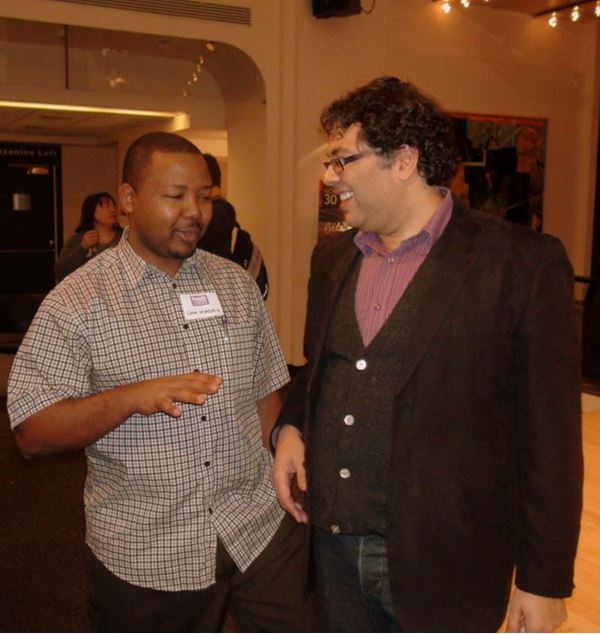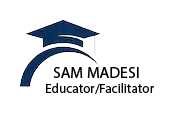How Should the Teacher Teach?
Like I have submitted elsewhere on this site, I’m not bothered with the wording semantics of the titles or labels we have as educators. Whether the question is how should the teacher teach? How should the educator educate? How should the animator animate? How should the facilitator facilitate or how should the chairperson chair a meeting? The wording of the question is only a preference. The real question I want to address is ‘how should the learning process unfold?’
Our learning design starts from the time we get to know that we’ll be in charge of an upcoming course. As we prep for the course, the moment we start developing topics, subtopics and writing the key points in our notice that we want our students to grasp, we are determining the learning content and thereby defining ourselves as content experts. On the other hand, if we start by developing exercises, games and thought provoking questions that get our learners to start thinking about what they want to learn and how they want to learn, then we are defining ourselves as process advocates.
During my past 25 years of practice as an educator/facilitator, I have worked with countless colleagues wishing to switch from being content experts to process advocates. One of the tough questions I have been asked is ‘how then do you prepare nothing until the first day of class?’ My answer is always as interesting as the question and here is what I have said: ‘process advocates will actually need to prepare three or four times more than content experts.’ Process advocates will need to plan how learning content that addresses every learners needs will be generated, generalized or categorized and condensed in a manner that it still remains relevant to all learners. Essentially, process advocates look for or build curiosity and love for learning and not the ability to acquire recite and reproduce textbook knowledge.
Whereas I have identified myself clearly as a process advocate, I do understand that sometimes it can be challenging to generate enough content or rich and deep discussion without a spark of some content or literature to ignite an informed discussion. Accordingly, I have sometimes played the role of an Animator who should know when to facilitate and when to smuggle in some content to guide the process. Over the years, I have also learned how to assertively intervene decisively and provide guidance to straighten discussions. I have been invited to different functions as keynote speaker, guest speaker, or to deliver a speech and some of my key planning areas include how to engage the audience to make sure that what I speak about is relevant and addresses their needs. In such circumstances, it’s obvious that as a speaker, you are the source of content. However, planning thought provoking questions, inspiring phrases or stimulating stories and allowing learners to interact and speak back to me has in my experiences been empowering than just me talking for an hour or so.
I believe that every individual who joins a learning space will have individualized learning needs and personalized learning capacities. My belief is partly based on my experiences as an educator and partly in reference to the available literature. Almost all adult learners will have precise reasons why they chose to study what they chose and expect to find precise answers to their learning needs. The study of assets management by John McKnight and John Kretzmann helped me to understand that there are no empty learners. All learners have some sort of capacities, strength and experiences on the subject matter being discussed but are only looking to fill up the other half of their glass to achieve their learning goals.
It is not uncommon for my participants to ask questions and another participant answers the question perfectly well to the satisfaction of not just the one who asked, but to all others in the learning space who had similar questions. Such experiences teach me that one learner’s capacity and experiences are another learner’s needs and as educators, all we need to do is create safe learning spaces for interaction and engagement on a journey to discovery. Indeed Rev. Dr. Moses Coady said “they shall use what they have to secure what they have not.” I have been in classes where teachers have told us to stop asking ‘off-topic-questions’ and I think it is fair to ask who is off-topic? Is it the teacher or the student? I definitely understand that when curriculum’s are developed without student input, usually there is a likelihood of a conflict to develop concerning learning content between teachers and students especially so when there is a need to complete the curriculum before deadline.
Content Neutrality is perhaps the most challenging aspect of being a process advocate but also one of the most important discipline requirement to allow a free and not manipulated discovery process by learners. About 25 years ago when I started my career as a facilitator with development organizations, I could not hold myself back from talking and talking throughout the session. As time went by, I learned to listen more than talk and I loved it. I discovered that it was a win-win for myself and my learners when I talked less and allowed my learners to talk more thereby everyone learning from everybody. We don’t learn as much from our own talks as we do by listening to others. In my book chapter (2019) titled ‘seeds of radical education at the Coady Institute,’ I discuss the rational of listening to learn and learning to listen as key facilitation skills that not only helps facilitators to be co-learners but also reassures participants that their views are being listened to and respected. The best way to learn is to come to a self realization that I don’t know. In fact, the Socrates paradox derived from Plato’s account of the great Greek philosopher, Socrates is quoted as saying “I know that I know nothing“
The art of giving and receiving honest constructive feedback has for over 15 years been part of my learning and facilitation superior tools as an educator. This practice became clear to me when I joined the Coady International Institute as a graduate student and thereafter as a teaching associate for the last 15 years. In 2005, while at the Coady Institute, I learned for the first time how to give a professor feedback not just at the end of the semester when I have forgotten or pilled up stuff, but at the end of every session or everyday. Traditionally, it is the professor who gives students feedback but here I was with the opportunity at the end of every session to say how I felt and make recommendations going forward. I want to submit that this is my favorite part of the learning process. In the first place, why should the learner continue to the next session if the previous session was not clear? As an educator, how do you know that they learned? I remember when some of my professors during my undergraduate studies stood by the exit door after a lecturer on their way out and shouted “have you all understood?” We never disappointed because we all wanted to follow the professor out so we always shouted back “yes” and that usually marked the end of our session evaluation!
I want to submit to all educators around the world that it’s not lost on us that we can only succeed when our learners have succeeded. In Machiavelli’s book ‘The Price’ he come close to saying that “the ends justifies the means.” I hasten to add that ‘but only when the means are pure.’
introduction
Talk to me for help
I help global learners with their ambition’s most critical issues and opportunities. Together, we create enduring change and results.

career
Find your will now
I help global scholars with their organization’s most critical issues and opportunities. Together, we create enduring change and results.


